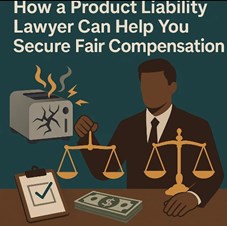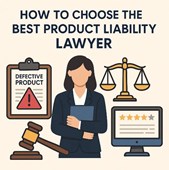Eligibility Criteria for the L-1 Visa: Are You Qualified?

The L-1 visa is an invaluable resource for multinational companies looking to transfer employees with specialized knowledge or executive and managerial roles to their U.S. offices. Understanding whether you qualify for this visa category is the first step in making a successful application. Here's a comprehensive guide to the eligibility criteria for the L-1 visa to help you determine if you are qualified.
1. Employment with a Qualifying Organization
To be eligible for an L-1 visa, the applicant must be employed by a qualifying organization. This means that the company must have a parent, branch, subsidiary, or affiliate relationship with a U.S. business. The employee must have worked for this organization for at least one continuous year within the three years preceding the application.
2. Nature of the Job
The L-1 visa is divided into two categories: L-1A for executives and managers, and L-1B for employees with specialized knowledge.
L-1A Visa:
To qualify for an L-1A visa, the employee must be coming to the U.S. to work in an executive or managerial capacity. This typically involves overseeing a major function, department, or subdivision of the organization, or directing the organization as a whole.
L-1B Visa:
For the L-1B visa, the employee must possess specialized knowledge that is essential to the organization's operations. This specialized knowledge could pertain to the company's products, services, research, systems, proprietary techniques, or management.
3. Evidence of Specialized Knowledge (L-1B)
For those applying under the L-1B category, it is crucial to demonstrate that the employee's specialized knowledge is unique or particularly valuable to the company. This might involve providing detailed descriptions of the employee's role, the nature of their specialized knowledge, and how it is utilized within the organization.
4. Continuous Employment
Applicants must have been employed continuously full-time by the overseas company for at least one year within the three years immediately preceding their application. This employment must be in a role that aligns with the L-1A or L-1B criteria.
5. Intent to Return
While the L-1 visa allows for dual intent (the possibility of seeking permanent residence while on a nonimmigrant visa), applicants must demonstrate their intent to return to their home country once their U.S. assignment is complete.
6. Establishing a New Office
If the L-1 visa application is for the purpose of establishing a new office in the U.S., there are additional criteria to meet:
- Physical Premises: Proof of securing physical premises for the new office.
- Business Plan: A detailed business plan outlining the anticipated operations and structure of the new office.
- Financial Viability: Evidence of the financial viability of the U.S. and foreign operations.
7. Compliance with USCIS Regulations
Applicants must comply with all U.S. Citizenship and Immigration Services (USCIS) regulations, including providing accurate and complete documentation and adhering to the procedural requirements for filing the petition.
Conclusion
Navigating the eligibility requirements for the L-1 visa can be complex, but understanding these criteria is essential for a successful application. Whether you are an executive, manager, or an employee with specialized knowledge, ensuring that you meet these requirements can significantly enhance your chances of obtaining the L-1 visa.
If you need assistance with your L-1 visa application, Sulekha Legal Services is here to help. Our experienced legal professionals can guide you through the process, ensuring that all criteria are met and your petition is prepared accurately. Contact Sulekha Legal Services today to get started on your L-1 visa journey.
Connect with us
Ensure your L-1 visa application is in expert hands. Connect with Sulekha Legal Services for comprehensive support and guidance. Contact us today to schedule a consultation and take the first step towards a successful L-1 visa application.
Searching for Legal Services? Let’s make your search simple with professionals!
Take your Legal Services to the next level with Sulekha. Boost your online visibility, connect with more clients, and grow effortlessly!
Blogs Related to Legal Services

What to Do Immediately After an Accident to Protect Your Rights
What to Do Immediately After an Accident to Protect Your Rights A sudden car accident law can leave anyone shaken and overwhelmed. Yet, the moments right after a crash are crucial if you want to protect your legal and financial rights. Knowing what

How a Product Liability Lawyer Can Help You Secure Fair Compensation
How a Product Liability Lawyer Can Help You Secure Fair Compensation A product liability lawyer

Indian American Car Accident Lawyer: Navigating US Law for Your Case
Understanding the Role of an Indian American Car Accident Lawyer Being involved in a car accident in the United States can be stressful, especially for Indian immigrants who are still getting used to the American legal system. This is where an India

How to Choose the Best Product Liability Lawyer for Your Case?
How to Choose the Best Product Liability Lawyer for Your Case? When you’ve been injured or suffered financial loss because of a defective product, finding the right product liability lawyer can make all the difference. These cases often involve larg

Insurance Lawyers: Your Friendly Shield in the World of Claims
Why Insurance Lawyers Matter More Than Ever Let’s be real—insurance paperwork is about as fun as watching paint dry, right? But when life throws a curveball (hello, denied claims or confusing policy language!), an insurance lawyer can step in like

The Day Free Speech Stood Still: Charlie Kirk’s Assassination
Charlie Kirk’s Assassination and What Comes Next On September 10, 2025, Charlie Kirk, the conservative activist and co-founder of Turning Point USA, was fatally shot at an outdoor event hosted at Utah Valley University




